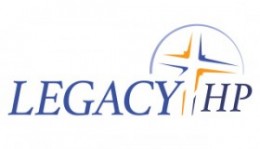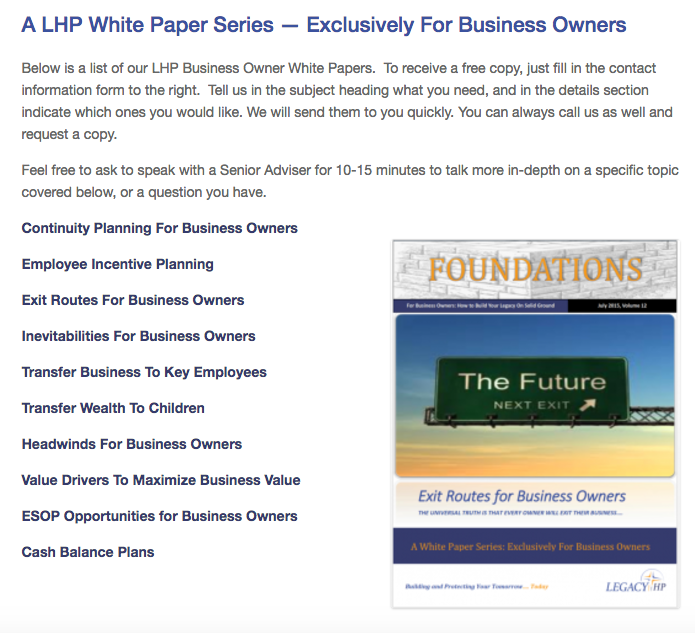As discussed in the previous issue of Grow and Protect Your Business, it is important to select your successor early in the Exit Planning Process. One of the great advantages of having other owners in your business is that they can be your means for retirement. Especially with smaller businesses, a common Exit Planning technique is to have a younger individual buy into your business while you are still active. Upon your exit, the younger owner will purchase your remaining stock.
This can be advantageous because the younger person learns the business — its structure, employees, customers, operation and management — while you are still active in the business. More important to you, the younger person’s capabilities (as well as his or her weaknesses) are known to you, so you have a pretty good idea of how your business will be run after you leave. And most important of all, the business can be sold to a market you create and control.
The following are additional advantages to selling your business to other owners or employees, as well as the disadvantages of this type of exit path. Take time to compare the advantages and disadvantages of this scenario before picking your target successor.
Advantages
- Owner can structure the deal ahead of time to suit his or her particular needs and objectives.
- With proper planning, it is possible to be cashed out of the business when you sell the controlling interest.
- Maintains a greater measure of control during the buyout.
- Pre-qualifies the buyer(s) through on-the-job training and observation.
- Continues the "culture" or mission of the business.
- Ensures that all of the employees who helped build the business won’t lose their jobs and future with the company.
- A side benefit of planning an employee buyout is that the steps taken to build value and train future owners will make the business more profitable, more stable and better managed — even if the owner decides to postpone his or her retirement or eventually to sell to an outside party. Thus, grooming the "heir apparent" allows flexibility in case the unexpected happens to the heir, such as sudden disability or receiving a large family inheritance. At the same time, the owner has developed a stronger business, both from a financial and employee standpoint.
Disadvantages
- No cash up front, unless the owner has pre-funded, and even then, he or she has probably pre-funded with money that was the owner’s anyway.
- Unless proper planning and implementation has occurred, a greater risk may exist because the owner’s buyout money typically comes from the future earnings of the business after he or she leaves it.
- In some instances, if the business is worth more than $3 million or so, it can be very difficult for the employees to be able to afford it. The owner may simply have too much money and financial goals at risk.
- Employees are often employees because they don’t have an owner "mindset." They’re not entrepreneurs and they may not respond well to the challenges and pressures of ownership.
Although there are many ways to minimize the disadvantages of this transfer strategy, it is important for you to bear in mind that there is still a significant risk in transferring control of the business to an insider when you leave your company, unless you are cashed out. As always, it is important to undergo proper planning so that you can take advantage of the positive outcomes associated with your chosen exit path.
In the next Grow and Protect Your Business issue, we will look at the third exit path option — sale to a third party. If you have any questions about selecting the right exit path, please contact us to discuss your particular situation.
Take care and have a good day,
Michael
ABOUT LEGACYHP: Our passion is our mission -- To position our clients into a positive, energized, posture -- within your businesses and within your lives -- So that you manage change confidently, take decisive action, and enjoy life's journey Today... while you enjoy building your Legacy for Tomorrow.
Notice: The information contained in this article is general in nature and is not legal, tax or financial advice. For information regarding your particular situation, contact an attorney or a tax or financial advisor. The information in this newsletter is provided with the understanding that it does not render legal, accounting, tax or financial advice. In specific cases, clients should consult their legal, accounting, tax or financial advisor. This article is not intended to give advice or to represent our firm as being qualified to give advice in all areas of professional services. Exit Planning is a discipline that typically requires the collaboration of multiple professional advisors. To the extent that our firm does not have the expertise required on a particular matter, we will always work closely with you to help you gain access to the resources and professional advice that you need.



